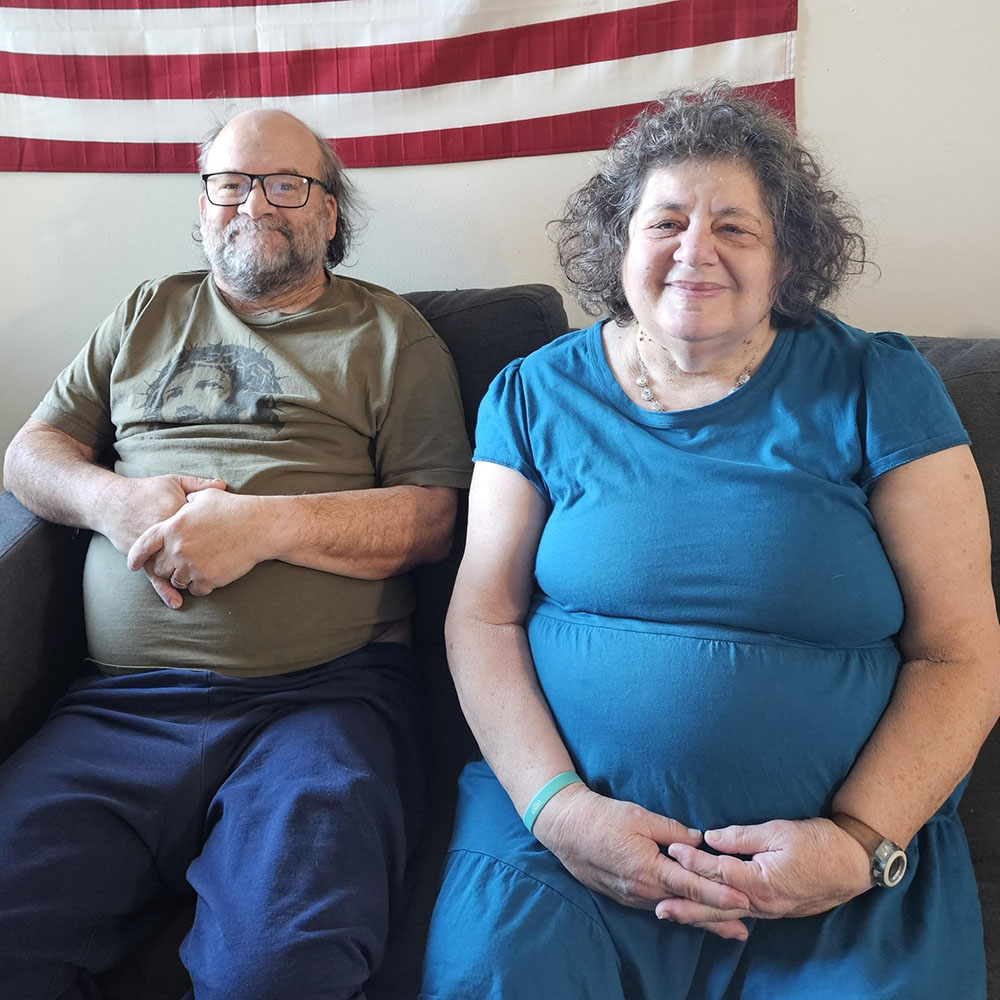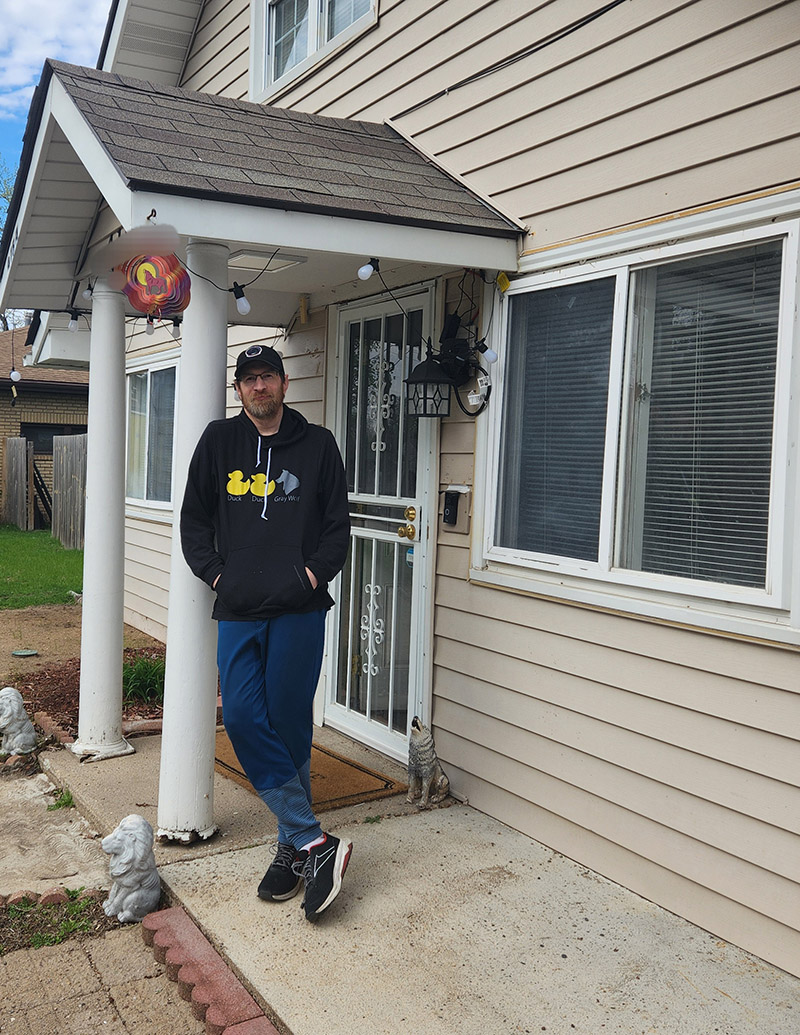Housing Stabilization Services
DHS has reviewed feedback from the public comment period and submitted the State Plan Amendment to CMS. As a result, the Housing Stabilization Services (HSS) program will officially end on October 31, 2025. This will be the last day services can be delivered. In addition, DHS will stop accepting new eligibility requests after Friday, October 10, 2025.
To help address questions, DHS has created an FAQ for HSS providers and participants. This resource will continue to be updated as new information becomes available, and DHS will share updates directly with providers.
DHS is also working with counties, Tribes, Urban Indian organizations, and Managed Care Organizations (MCOs) to identify other resources that may be available to those impacted by the end of HSS. Many of these can be found at mn.gov/dhs/housing-resources.
For participants who have already had an intake meeting with Reach, the Housing Supports Manager will connect with you to explore potential eligibility for the resources identified by DHS. Please note that each resource has its own eligibility requirements—being eligible for HSS does not guarantee eligibility for other programs.
We understand the ending of this program may have a significant impact, as it has filled an important gap for many participants. While these resources may help, they cannot fully replace the services HSS has provided.
In the coming weeks, DHS will continue working with CMS on public notification and will share additional details and guidance with participants, providers, and partners ahead of the program’s end date. Please check out DHS’s Frequently Asked Questions page at mn.gov/dhs/housing-stabilization-services-termination.
Reach is dedicated to helping people with disabilities and other conditions find and maintain housing. Our services go beyond just searching for and securing housing; we also focus on preventing future instability. Through continuous support and resources, we aim to avoid homelessness and reduce the need for institutional care, enabling individuals to live independently in the community.
Reach provides support for Housing Stabilization Services, which include Housing Transitional and Housing Sustaining Services. While Reach does not own any housing options, we connect people with community resources to meet their needs. Click here to view our Housing Services flyer.
For more information please contact our Housing Supports Manager, Emma Harrington at 612-541-3559 or [email protected]. Click here to view/download our Housing Services brochure.

Expert Support: Our team is made up of housing professionals who are thoroughly trained and experienced in both housing systems and supporting individuals with disabilities. We work closely with each person to ensure they have the knowledge, resources, and support needed for housing success.
Customized Assistance: We understand that each person’s journey is unique. That’s why our services are tailored to meet individual needs, ensuring you have the right support every step of the way. From finding a home to maintaining current housing and navigating day-to-day challenges, we are committed to your long-term stability.
Preventing Homelessness & Institutionalization: Our services focus not only on searching for and securing housing but also on preventing future instability. Through continuous support and resources, we aim to avoid homelessness and reduce the need for institutional care, helping individuals live independently in the community.
Housing Transition
We offer comprehensive support with all the details associated with moving, including but not limited to:
- Developing a plan
- Assisting with the housing application process
- Organizing and researching housing options
- Applying for housing
- Ensuring adaptive accommodations are in place
- Coordinating the details of a move (lease details, moving truck, supplies, etc.)
Housing Sustaining
Our goal is to help people stay living where they want to! We provide assistance with:
- Education and training to develop good relationships with landlords, property managers, neighbors, and roommates
- Understanding and applying for housing-related benefits
- Transportation support
- Assistive technology
- Arranging adaptive housing accommodations
- Navigating economic assistance
- Connecting individuals with a Community Living Specialist (CLS) staff, for additional 1:1 support if transitioning from a group setting to an individual living arrangement

Housing Support – Independent (formally Group Residential Housing Services)
The Housing Support program helps cover housing costs for individuals at risk of institutional placement or homelessness.
Payments are made to housing providers to cover rent, utilities, food, household supplies, and other necessities. Depending on your income, you may need to contribute a portion of the Housing Support rate directly to your housing provider.
To qualify for assistance, you must meet a combination of eligibility requirements set by the Supplemental Security Income program or General Assistance program. There are also income and asset limits. The program serves:
- People 65 or older
- People younger than 65 with conditions that limit their self-sufficiency, such as physical or mental health disabilities, visual impairments, or chemical dependency.
Housing Supports FAQs
Who is eligible for Housing Stabilization Services?
A member is eligible for housing stabilization services if they meet all of the following needs-based criteria:
- Be on Medical Assistance (MA)
- Be 18 years old or older
- Have a documented disability or disabling condition, defined as one of the following:
- A person who is aged, blind or has a disability as described under Title II of the Social Security Act.
- A person with an injury or illness that is expected to cause extended or long-term incapacitation.
- A person with a developmental disability (or related condition) or mental illness.
- A person with a mental health condition, substance use disorder or physical injury that required a residential level of care and who is now in the process of transitioning to the community.
- A person who is determined to have a learning disability according to policy adopted by Minnesota Department of Human Services (DHS); or
- A person with a substance use disorder and is enrolled in a treatment program or is on a waiting list for a treatment program.
- Be assessed to require assistance with at least one of the following areas resulting from the presence of a disability or a long-term or indefinite condition:
- Communication
- Mobility
- Decision-making; or
- Managing challenging behaviors
- Be experiencing housing instability, evidenced by one of the following risk factors:
- Homeless. An individual or family is considered homeless when they lack a fixed, adequate nighttime residence; or
- Currently transitioning, or has recently transitioned, from an institution or licensed or registered setting (registered housing with services facility, board and lodge, boarding care, adult foster care or community residential setting, hospital, Intermediate Care Facility for persons with Developmental Disabilities (ICF/DD), intensive residential treatment services, the Minnesota Security Hospital, nursing facility, regional treatment center); or
- At risk of homelessness. An individual or family is at risk of homelessness when
- The individual or family is faced with a situation or set of circumstances likely to cause the household to become homeless, including but not limited to: doubled-up living arrangements where the individual’s name is not on a lease, living in a condemned building without a place to move, having arrears in rent or utility payments, receiving an eviction notice without a place to move or living in temporary or transitional housing that carries time limits; or
- The person, previously homeless, will be discharged from a correctional, medical, mental health or substance use disorder treatment center and lacks sufficient resources to pay for housing, and does not have a permanent place to live; would be at risk of homelessness if housing services were removed
- At risk of institutionalization – meets an intuitional level of care/eligible for the following waivers:
- Brain Injury (BI)
- Community Access for Disability Inclusion (CADI)
- Community Alternative Care (CAC)
- Developmental Disability (DD)
- Elderly Waiver (EW)
For additional information, please visit Minnesota Housing Stabilization Services.
How do I know if I qualify for Reach's Housing Stabilization Services?
To qualify for Housing Stabilization Services:
- If you have a current Case Manager, they can authorize the service(s) on your Support Plan.
- If you do not have an existing Support Plan, you must first participate in the Housing Consultation process.
- You will need to obtain proof of eligibility as required by DHS.
- Housing Stabilization Services are available to any Medical Assistance recipients over the age of 18.
Click here to make a referral.
Have a question about our policies & procedures? Click here to learn more.
What is the goal of Housing Stabilization Services at Reach?
Our goal is to ensure individuals successfully stay in their homes. We offer:
- Education and training to build positive relationships with landlords, neighbors, and roommates.
- Support in understanding and applying for housing-related benefits.
- Assistance with transportation and assistive technology.
- Help arranging adaptive housing accommodations.
- Guidance in navigating economic assistance programs.
- Connection to Community Living Specialist (CLS) staff, especially for those transitioning from group settings to individual living arrangements.
Click here to make a referral.
What are the Housing Stabilization Services Policies & Procedures?
Housing Stabilization Services are not a 245D licensed service, but we adhere to the 245D policies and procedure. Click here to learn more.
Contact
For more information please contact our Housing Supports Manager, Emma Harrington at 612-541-3559 or [email protected].
